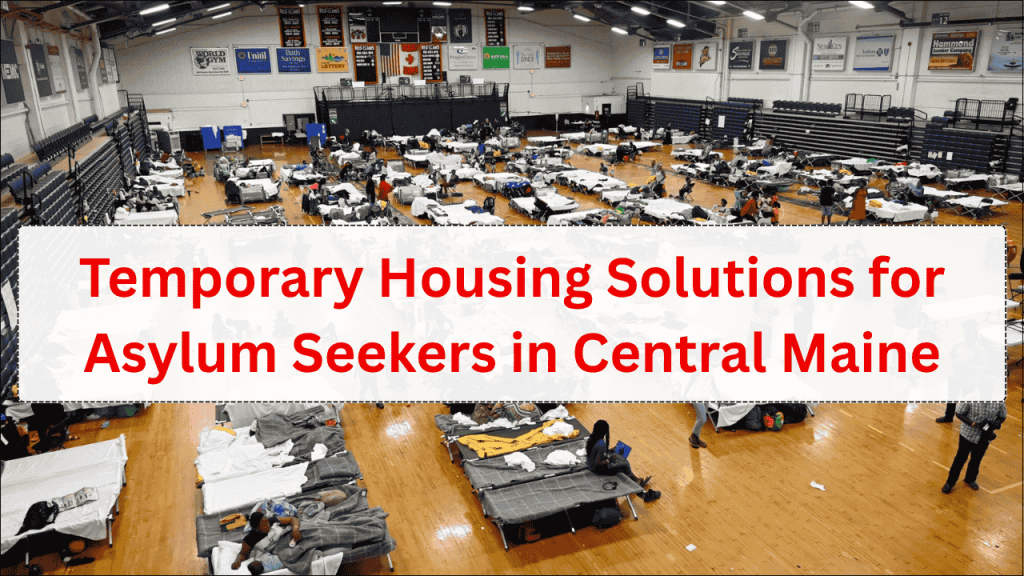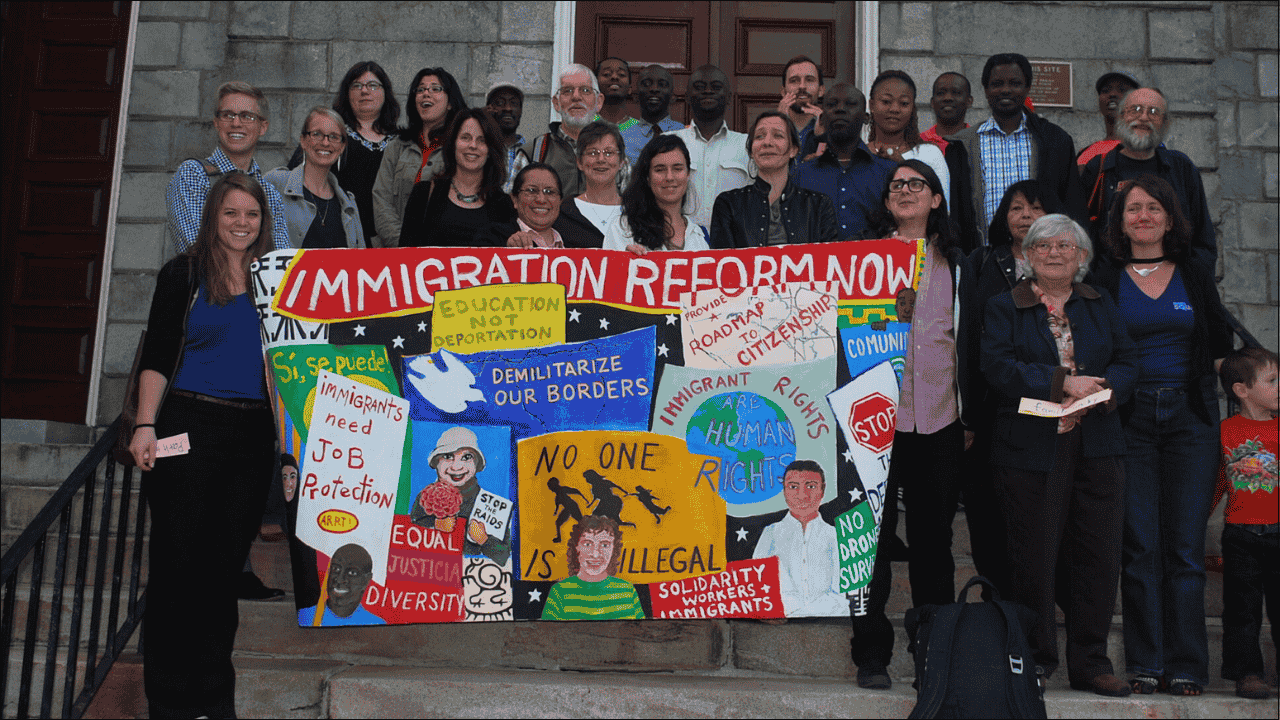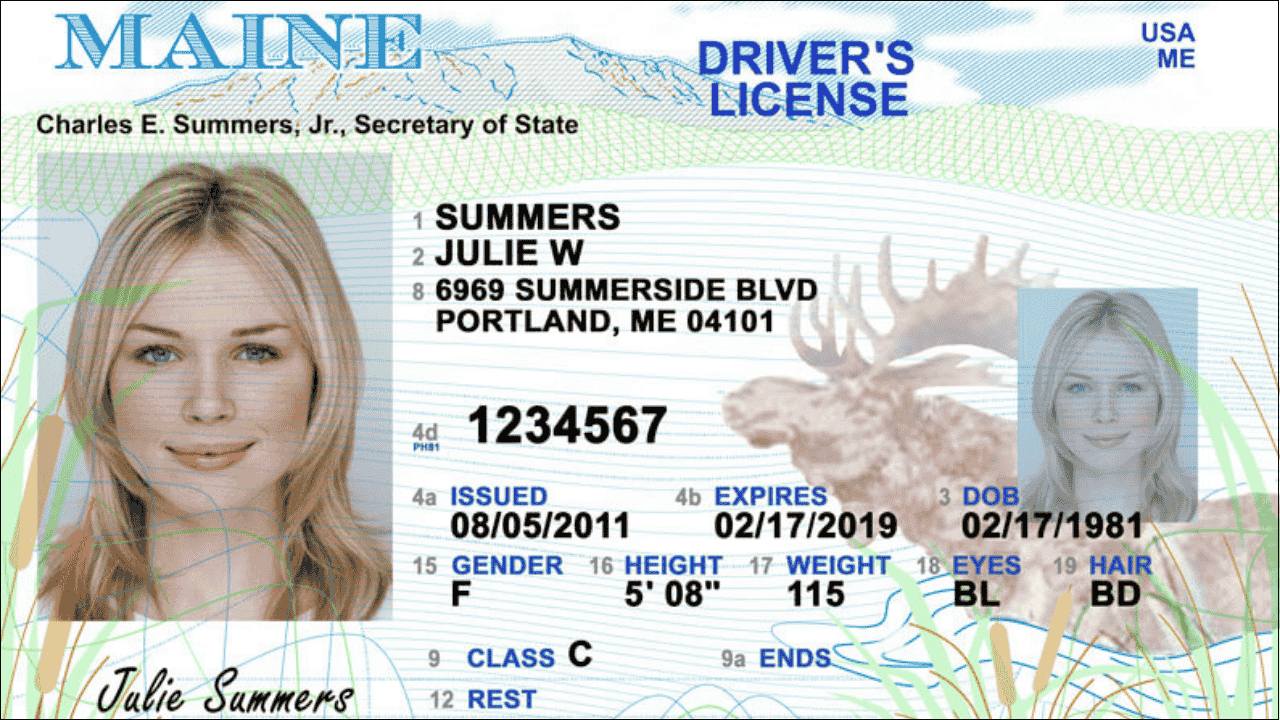
Many asylum seekers arriving in Central Maine face challenges with finding safe and stable housing. A rising number of families and individuals seek shelter while waiting for legal documentation, work permits, and long-term residence. Temporary housing becomes a critical need during this period. Local governments, non-profit groups, and faith-based organizations are working together to provide shelter, support, and hope. Understanding the types of housing, who provides it, and what services are included is important for anyone trying to help or understand this issue.
Table of Contents
Types of Temporary Housing Available
Emergency Shelters
- Emergency shelters give quick relief to those with no place to stay.
- These are often large buildings like gyms or churches with beds and bathrooms.
- Meals, basic medical care, and caseworker support are sometimes included.
Hotels and Motels
- When shelters are full, towns book rooms in nearby hotels and motels.
- These provide privacy and safety but may lack kitchen access or laundry.
- Local governments often cover costs through grants or state funds.
Faith-Based Housing
- Churches and religious groups open their doors to asylum seekers.
- Volunteers provide meals, sleeping space, and emotional support.
- Some churches partner with resettlement agencies for extra services.
Non-Profit Shelters
- Local nonprofits create housing programs just for asylum seekers.
- These often include case management, English classes, and food access.
- Nonprofits also help with school enrollment and legal referrals.
Host Homes
- Families in Central Maine welcome asylum seekers into their homes.
- Programs screen both hosts and guests to ensure safety and comfort.
- Cultural exchange and friendship often grow in these spaces.
Transitional Housing Programs
- Some programs offer short-term rental apartments for families.
- Residents stay for 6–12 months while saving money and job hunting.
- Rent is reduced or paid by agencies.
Key Providers in Central Maine
| Provider | Type of Housing | Services Offered |
|---|---|---|
| City of Portland | Emergency shelters, hotels | Food, healthcare access, caseworkers |
| Maine Immigrants’ Rights Coalition (MIRC) | Non-profit shelters, host homes | Legal help, ESL classes, childcare |
| Catholic Charities Maine | Transitional housing | Rent support, employment services, school help |
| Hope Acts | Supportive housing | English lessons, cultural orientation |
| Greater Portland Family Promise | Host homes, day centers | Meals, shelter, job training |
Basic Services Included
Food and Meals
- Meal programs run by churches and shelters serve breakfast and dinner.
- Food pantries give groceries to families staying in motels.
- School lunch programs help children get daily meals.
Transportation Help
- Bus passes or rideshare programs help with legal appointments.
- Volunteers often drive people to clinics, schools, or job interviews.
- Shelters located near bus lines improve access.
Healthcare Access
- Medical clinics offer free or low-cost care to asylum seekers.
- Immunizations, check-ups, and mental health support are priorities.
- Caseworkers help with MaineCare or other health coverage applications.
Language and Education Support
- ESL (English as a Second Language) classes are available in many shelters.
- Public schools in Central Maine enroll children without delay.
- Libraries and community centers offer tutoring and homework help.
Legal and Case Support
- Legal aid groups assist with asylum paperwork and interviews.
- Immigration lawyers work pro bono or through low-cost services.
- Caseworkers track progress, appointments, and legal updates.
Employment and Skills Training
- While asylum seekers wait for work permits, many attend job training.
- Skills classes include resume writing, computer basics, and customer service.
- Some nonprofits help prepare for job markets once permits arrive.
Challenges in Providing Housing
Limited Space
- Shelters and motels in Central Maine quickly reach full capacity.
- Overflow leads to long waiting lists and overcrowding.
Funding Shortages
- Government and donor funds do not always cover rising needs.
- Emergency housing programs often depend on short-term grants.
Language Barriers
- Lack of interpreters delays medical care, legal help, and school enrollment.
- Multilingual volunteers and technology help bridge the gap.
Cultural Adjustment
- New environments, customs, and laws create stress for asylum seekers.
- Cultural training and community outreach programs reduce confusion.
Legal Waiting Periods
- Delays in processing asylum applications slow down access to work and housing.
- Families sometimes wait months without stable income or housing rights.
Community Impact and Support
Local Government Role
- Town councils allocate emergency budgets for temporary housing.
- Officials work with landlords and hotels to find available rooms.
- State and federal aid programs provide short-term relief funds.
Volunteer Involvement
- Volunteers prepare meals, donate supplies, and offer transportation.
- Many households sign up to become host families through church groups.
- Local schools help children adjust with extra tutoring and peer support.
Positive Outcomes
- Children enrolled in schools quickly begin to learn English and make friends.
- Families reunited with extended relatives create stronger support systems.
- Many asylum seekers become self-sufficient once work permits are granted.
Ways to Improve Temporary Housing
| Area | Suggested Improvement |
|---|---|
| Shelter Capacity | Build more emergency shelters with flexible layouts |
| Funding | Secure longer-term federal grants for housing programs |
| Communication | Provide more interpreters and multilingual materials |
| Legal Aid | Increase access to immigration lawyers and paralegals |
| Mental Health Services | Include trauma-informed care and support groups |
| Coordination | Create better links between shelters, schools, and clinics |
Wrapping Up
Temporary housing for asylum seekers in Central Maine is a vital part of the resettlement journey. Families escaping danger need safety, support, and a place to rebuild their lives. Communities, government agencies, and volunteers continue to work hard to meet these urgent needs. Though challenges remain, hope grows every time a family finds shelter and kindness. Better resources and long-term planning will strengthen Maine’s role as a safe, welcoming place for all.





